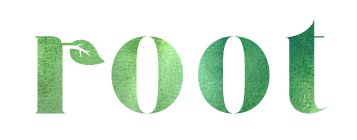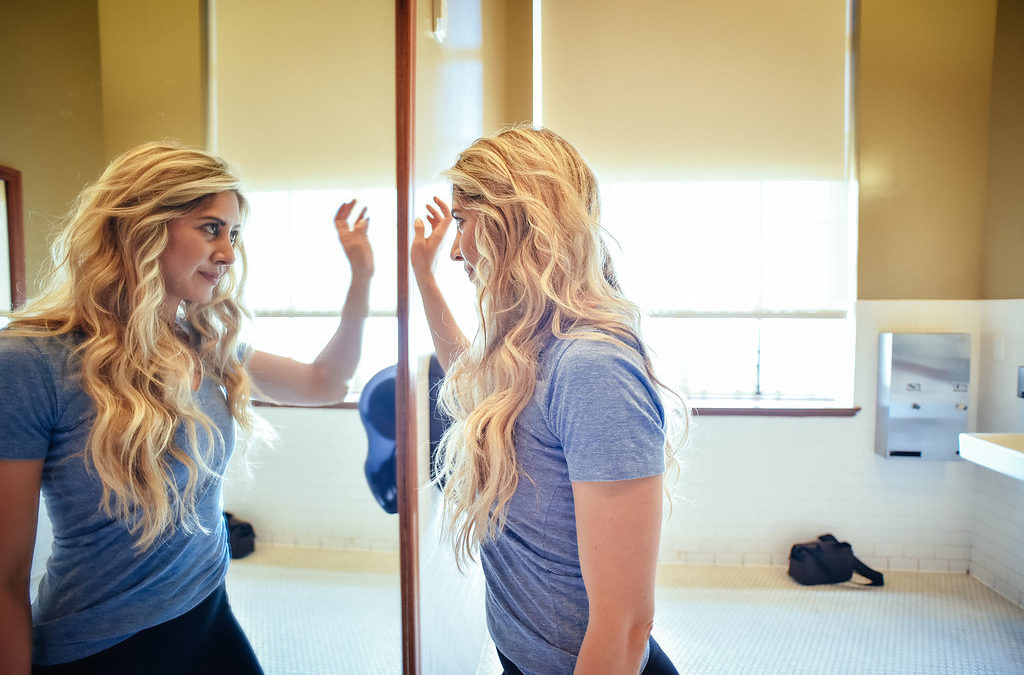“Your wounds are craving your healing. Lean into yourself and be the deep listener you’ve always needed.” – Vienna Pharaon
In yoga, we say that the physical symptoms like chronic pain or illness, are the last signs to show up. In Ayurveda (the sister science of yoga), things like digestion and sleep patterns are looked at as tools to help spot imbalances and offer a direction for healing.
Healing is the process of becoming healthy or whole again, meaning we have to consider ourselves as more than just a physical body having physical symptoms in order to address that wholeness.
Our physical symptoms have an effect on our mental and emotional health just as much as our mental and emotional health impacts our physical symptoms. How do I know this? The same way you know this? Good ol’ fashion experience… and science of course.
Have you ever felt like you had a physical symptom (back pain or digestive issues) and nothing or no one could help? When my back pain was at it’s worst as a teenager, my mom took me to several specialists who, after dozens of tests and a CAT scan, said my back was in perfect working order.

You would think I would have been relieved to know that nothing was “wrong”, but I wasn’t. I was angry, upset, and overwhelmed with a feeling of hopelessness. If these specialists couldn’t help me and nothing was “wrong”, would I ever get better? The doubt, isolation, and sadness I was feeling because of my physical pain, only made my pain worse as I became stuck in the pain cycle.
Let’s now explore this from the other end. All of us have faced emotional and mental challenges and trauma. Yet it’s rare that we link those experiences to our physical health. But the truth is, everything we experience gets stored in our bodies and tissues.
When something is not acknowledged or welcomed (good, bad, light or heavy), it’s stored. Typically, it’s the painful feelings and experiences that we resist welcoming and are afraid to confront.
When my dad passed away, I had no idea what to do with that grief. I also didn’t want to believe my Dad was gone. For a while, I pretended that he lived in a faraway land and we just didn’t get around to speaking much. I was afraid to acknowledge his death for fear that I would start crying and never stop.
That grief had compounded in my body and was showing up in my posture, my breath, relationships and physical aches. Again, without my awareness, I was stuck in the pain cycle.

When we’re wounded in any way, we’re in a constant state of “flight vs. fight” (meaning we are in a chronic state of “survival mode”). And take it from me, when we are used to living in the pain-stress cycle and paralyzed by fear, it can be nearly impossible to connect that our current habits are signs that we are in need of healing.
But remember, the physical symptoms show up last. Here are some daily protection patterns to look for in yourself (or loved ones) that may reveal a need to heal.
You react first, think later: When we’re emotionally or mentally wounded, we’re internally in survival mode. As a result, our brains tell our bodies that we are in serious and imminent danger so we react based on instinct and fear and not rationale. This dates back to caveman times when we couldn’t risk waiting and contemplating whether the beast outside our cave was a friend or a foe.
Today, post-caveman, we still react as though we are in a constant state of threat due to chronic stress. Whether we are stuck in traffic (and afraid of being late) or get a promotion (happy yet terrified of the amount of responsibility) we have an immediate response that is usually grounded in fear.
When we find ourselves stuck in a pattern of instant reaction, this means that we aren’t being mindful or giving ourselves the space to process what is really showing up. And when we fail to acknowledge our feelings before we act on them, it generally leads to fatigue, anger, resentment and a sense of disconnection from ourselves and others.
If you find yourself quickly reacting to situations and then later regret those actions, then you’re likely struggling with unresolved issues that need a closer look.
You’re easily distracted: Distraction is normal and happens to everyone. I’m not talking about the normal distractions like when your phone rings in a meeting or a loud siren interrupts your conversation. I’m referring to a prolonged pattern of self-distraction which results in loss of productivity and movement towards a goal.
The constant need to distract ourselves often indicates you’re struggling internally. Distraction is a powerful tool that energizes resistance and avoidance. Again, you’re in survival mode, meaning you do not feel safe enough to let go and trust. As long as you stay on the “look-out” and keep your attention everywhere else, there is no time to be vulnerable.
Your plans or projects have stalled: This is an off-shoot of the distraction symptom, but often when we’re grappling with emotional and mental wounds everything else hits a wall. Did you get passed over for that promotion or fail to meet a goal? Were you planning a trip with the girls, writing that book or starting that blog but none of them got off the ground?
Whether we notice it or not, emotional pain is exhausting and takes a lot of effort to endure. We’re often not able to focus enough to follow through on our plans or we’re too busy being “on guard” to even make any. Within each missed goal is our ego protecting itself from the fear and threat of taking a leap into the unknown.
You spend lots of time daydreaming about a drastic move: I’ll be the first to admit that I’m a daydreamer. I love to think I’m on an island somewhere without a phone or computer, and that an endless line of green juices miraculously appears for my enjoyment.
 There is a big difference between the occasional fantasy and the daily desire to quit your job, leave your marriage or pick up and move to Alaska (shout-out to Alaska).
There is a big difference between the occasional fantasy and the daily desire to quit your job, leave your marriage or pick up and move to Alaska (shout-out to Alaska).
All of those things might be the right decision in the long run, but it’s the ongoing thoughts of being somewhere 100% different than where you are right now that reveals how unsafe you feel in your mental and emotional world and how the life your living is not serving your highest calling.
You find it hard to truly be happy for other people: No one wants to admit this, but we’re all guilty of hearing someone else’s good news and wanting to roll our eyes or make up a reason as to why they got the opportunity instead of you.
It’s not because we’re bad people, but it comes from our fear of scarcity (there are not enough opportunities to go around) and our feelings of unworthiness (we don’t deserve happiness).
Remember, we’re in survival mode so, this is our ego’s way of protecting us from potential disappointment. When our ego is calling the shots, that means we are feeling threatened by something within us.
You’re in physical pain: My physical pain was my big wake-up call to my unfelt emotional pain about losing my Dad. For many, this is sometimes the fastest way to know something needs healing. When we hold onto too much stress or emotional pain, we can notice one of two things (or perhaps both!):
- We are carrying our pain somewhere in our body or experiencing chronic symptoms like headaches, disturbed sleep, digestive issues, etc. (me and my horrible back pain)
- We are getting sick more frequently.
Mental and emotional stress changes our cell structure because when we are experiencing this, we perceive the world around us as a threat. Our perception of our reality will send corresponding signals to our bodies and our bodies will respond based on those signals.
When we are in a constant state of threat, stress and fear our body is not concerned with protecting our internal environment and fighting off bacteria or balancing our hormones because it’s focused on keeping us safe externally. So the priority is shifted to getting us to a safe place, not keeping us healthy. After all, how important is our health if we get eaten by that bear?
If you have a habit of one or more of the above signs, it’s time to get curious about what’s going on beneath the surface. Awareness is the first step to understanding, so take some time to meditate, journal, or explore your patterns on your own, with a therapist or yoga therapist. Once you get clear about your emotional and mental state, you can begin to shift your protection patterns and move to a freer and lighter space.


Recent Comments